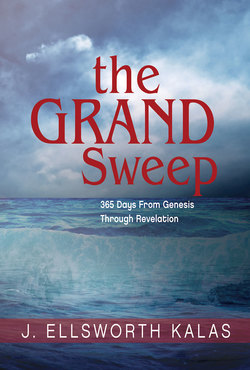Читать книгу The Grand Sweep - Large Print - J. Ellsworth Kalas - Страница 32
На сайте Литреса книга снята с продажи.
Оглавление| EXODUS 3–4; PSALM 28 | Week 4, Day 4 |
As chapter 2 ended, we learned that God saw the pain of the people (2:23-25); but how is deliverance to come? God’s purposes are almost always achieved through persons. In this case the person is a likely/unlikely one, but this too is pretty typical of God’s working. This man was miraculously saved as an infant and raised as a prince, but he had spent most of his adult life on the back side of a desert, tending his father-in-law’s flock of sheep.
No wonder, then, that when God calls him, Moses has little self-confidence and quickly explains to God that he is not qualified; he has to be convinced and restored before he can be useful for any purpose. Yet see a marvel and an irony in this encounter. The marvel is that God allows the shepherd to argue with him, and the irony is that this man who says he is afraid to plead a case with Pharaoh is nevertheless bold to state his case before God.
And see the quality of God’s patience. Instead of giving Moses an ultimatum (“Shape up and do it my way or else”) or instead of simply overpowering him with divine reasoning, God cooperates with Moses’ feelings of inadequacy and provides help through his brother, Aaron.
“Two are better than one,” a wise one said, “for if they fall, one will lift up the other” (Ecclesiastes 4:9-10). Moses and Aaron will have opportunity for such lifting.
PRAYER: Forgive me, Lord, when I argue with you; but remember that I am dust and that sometimes I feel very weak; in Jesus’ name. Amen.
List Moses’ several objections to what God was asking him to do. Identify examples in yourself of similar hesitancy in responding to God’s call.
